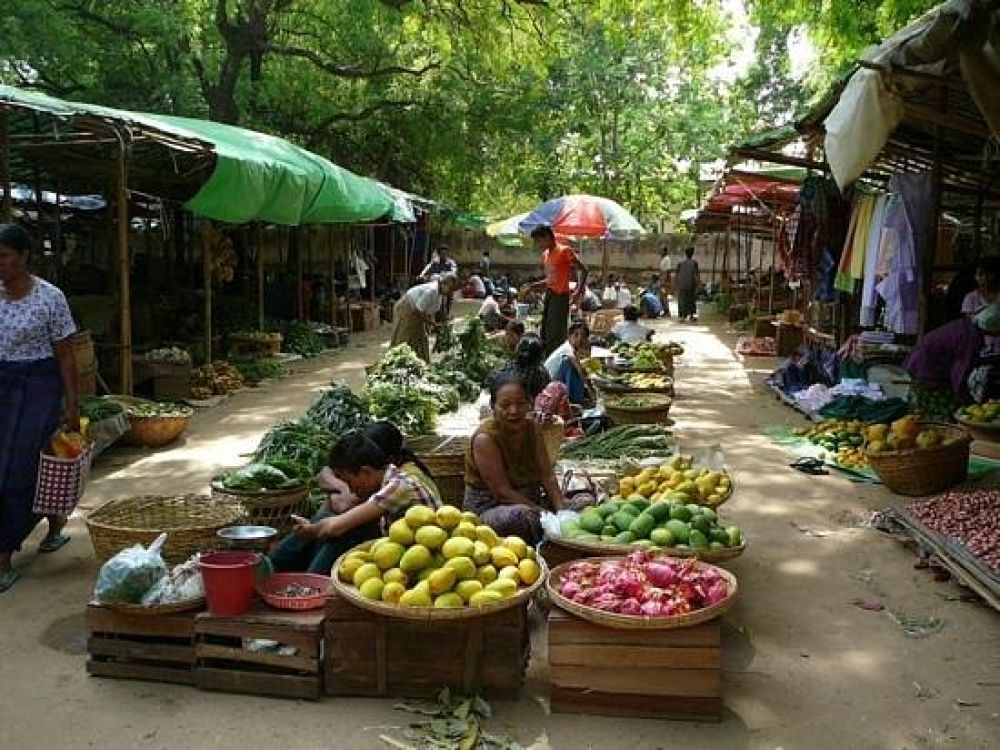

Bagan, once the capital of a powerful ancient kingdom, is best known for its vast and beautiful range of Buddhist temples, pagodas, and monuments. Bagan's history as a tourist destination began in earnest in the mid-20th century, when adventurous travelers started to visit the site to witness the architectural wonders of the Bagan Archaeological Zone. However, it wasn't until the late 20th and early 21st centuries that tourism significantly increased as Myanmar (formerly Burma) opened up more to international visitors.
Nyaung U Market, situated close to the historical sites, has long been an integral part of local life and has progressively emerged as a place of interest for tourists wanting to experience the genuine local atmosphere, culture, and daily commerce of the Bagan region. Its setting within the larger context of Bagan's archeological wealth makes it a must-visit destination within any traveler's itinerary.
The colorful and vibrant Nyaung U Market offers a window into the traditional Burmese way of life. The market is more than just a place of commerce; it is where the locals engage in daily social exchanges. The market's stalls buzz with life, selling a variety of goods ranging from fresh produce, exotic spices, and exquisite handicrafts to local cuisine. The myriad of scents and sights at Nyaung U Market ensures a sensory experience that travelers find both enchanting and educational.
The face of tourism in Bagan, and at Nyaung U Market by association, has evolved with changing global trends and increased awareness about cultural preservation. Tourism now often centers around sustainable practices and responsible travel. This is apparent in organized tours that emphasize supporting local artisans and vendors, engaging in respectful interactions, and minimizing ecological impact.
The latest trend in Bagan and Nyaung U Market tourism also sees a growing interest in immersive experiences. Travelers are looking for opportunities to engage more deeply with the local community and culture, often participating in cooking classes, traditional craft workshops, or guided tours that focus on Nyaung U's historical significance.
Tourism has become a critical part of the economy in Bagan, with the Nyaung U Market playing an important role. The influx of tourists provides financial support to local businesses and vendors, helping to sustain traditional crafts and trades. There is an increasing emphasis on the part of local authorities and international organizations to ensure that the growth of tourism is managed sustainably, balancing the needs of visitors and the preservation of the Market's authentic charm.
For those planning to visit Nyaung U Market, the mornings are often the best time to capture the lively atmosphere. It is also advisable for visitors to be respectful of local customs and dress modestly. Exploring the market can be done independently, but local guides can provide insightful contexts and storytelling to enrich the experience.
The market's proximity to other notable sites in Bagan makes it convenient for tourists to incorporate a visit to the market into a broader tour of the region's historical landmarks.